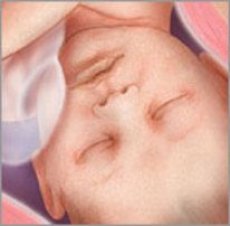Medical expert of the article
New publications
Pregnancy: 39 weeks
Last reviewed: 08.07.2025

All iLive content is medically reviewed or fact checked to ensure as much factual accuracy as possible.
We have strict sourcing guidelines and only link to reputable media sites, academic research institutions and, whenever possible, medically peer reviewed studies. Note that the numbers in parentheses ([1], [2], etc.) are clickable links to these studies.
If you feel that any of our content is inaccurate, out-of-date, or otherwise questionable, please select it and press Ctrl + Enter.

How the child grows:
Your baby continues to grow the fat layer that helps regulate body temperature after birth. Your baby will likely have increased in height and weight slightly.
Important: Each baby's development is unique. Our information is designed to give you a general idea of fetal development.
Changes in the expectant mother
Each weekly visit to the doctor includes an abdominal exam to check the baby's growth and position. The doctor may also perform an internal exam to check for changes in the cervix: softening, contraction, and dilation. But even armed with this information, there are no definitive indicators that labor has begun. If labor has not started by the end of the pregnancy, the doctor will perform fetal tests (usually a sonogram) after 40 weeks to ensure that it is safe to continue the pregnancy. If labor has not started on its own, the doctor will induce labor within one to two weeks of the due date.
At this time, you should continue to count your baby's movements and notify your doctor if they slow down. Your baby should remain active until labor begins, and a significant decrease in activity may indicate a problem. Also call your doctor if you think your membranes have ruptured. Do not self-diagnose if contractions do not begin after your membranes have ruptured; your doctor will call them.
Body changes after childbirth
Even if your pregnancy and birth were easy and quick, it may take some time to get back into shape. Remember that the previous changes took place over 9 months, so getting back into shape will not happen quickly, either emotionally or physically.
What to expect:
- You will start losing weight right away. After giving birth, you will lose 5-6 kg: this is the weight of the baby, placenta, blood and amniotic fluid. The belly will start to flatten in a week, by the end of which you will have lost another 2 kg of water weight.
- You will have postpartum discharge called lochia. After giving birth, the cells that form the lining of the uterus will begin to leave the body, causing a discharge called lochia that lasts for many weeks. At first, this discharge is mixed with blood, but gradually the color changes to white or yellow.
- Your emotions may change rapidly. Within a week or two, many new mothers experience postpartum depression. You may become moody, sentimental, exhausted, have trouble sleeping, or feel more anxious. Your appetite may also change, either increasing or decreasing. The good news is that this emotional upheaval will pass within two to three weeks. Call your doctor if:
- You have symptoms of abnormal vaginal bleeding: heavy bleeding, large blood clots, or bright red bleeding that lasts longer than four days or longer after delivery. Go to the emergency room if the bleeding is accompanied by symptoms of shock, including dizziness, weakness, rapid heartbeat, fast or slow breathing, and confusion.
- You have symptoms of infection: fever, lower abdominal pain, and foul-smelling discharge (symptoms of endometritis); difficulty urinating, painful urination, cloudy or bloody urine (symptoms of a urinary tract infection); redness, tenderness, and swelling around the wound (due to an episiotomy, cesarean section, or tears); soreness, redness of the breast, fever, chills, muscle aches, and possibly headache (symptoms of mastitis or breast infection).
- You have symptoms of postpartum depression: inability to sleep even when the baby is sleeping, any thoughts about harming the baby, unexplained crying and tantrums.
How to recover as quickly as possible:
- Get more rest. Use your child's sleep for your own rest.
- Limit the number of guests and the time you spend with them. Turn off your phone while you sleep.
- Maintain a balanced diet.
- Drink plenty of fluids. Avoid caffeine, alcohol, and sugary drinks.
- Accept all offers of help, such as cooking, cleaning the house, caring for older children, etc. If no one offers you help, ask for it yourself.
- Talk to friends, relatives and other mothers, their advice will help you cope with new responsibilities.
This week's activity: If you're planning to breastfeed and haven't yet invested in a nursing bra, now's the time. Your breasts are probably larger than they were before pregnancy and will likely get even larger while you're nursing, so a new, supportive bra is a must. When shopping next, don't forget to pick up some nursing pads to absorb discharge and some nipple cream.


 [
[